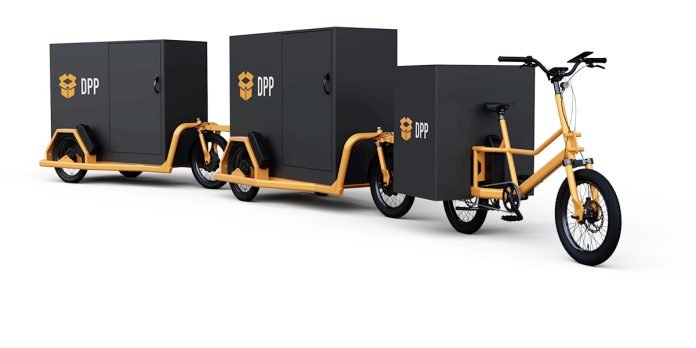The realm of electric bike innovations has been witnessing notable advancements, particularly in France. Among these, the pelicanTrain stands out as a significant development in cargo transportation. This modular system, combining an electric cargo bike with one or two powered trailers, presents an innovative solution for urban cargo transport.
Overview of the pelicanTrain system
At the heart of the pelicanTrain system is the aluminum-framed Pelican ebike, which functions as the primary vehicle. Despite being a competent electric bike, it’s not primarily designed as a standalone cargo-hauler, unlike models such as the Ouca. However, its rear frame can support a rack over the 20-inch rear wheel and additional racks on either side, with a capacity of up to 300 liters or 220 lb (100 kg).
The true potential of the pelicanTrain lies in its ability to exponentially increase its cargo capacity through the addition of trailers. The first trailer can haul up to 440 lb (200 kg) and 1,500 liters. Remarkably, this trailer includes its own e-drive, and the system’s proprietary control synchronizes acceleration and braking between the bike and trailer, ensuring smooth operation.
A second self-powered trailer can be attached, further enhancing the system’s capacity by an additional 440 lb and 1,500 liters, cumulating in a total capacity of 1,100 lb (500 kg) or 3,000 liters.
Comparisons and capabilities

To contextualize the pelicanTrain’s capacity, it’s comparable to the cargo volumes of small vans like the Ford Transit Connect and Volkswagen Caddy SWB, which hold about 2,900 to 3,100 liters. This makes the pelicanTrain not just a green alternative for urban freight but also a practical solution with significant load capacity.
In terms of performance, the pelicanTrain is capable of tackling 18% grades even with a full load. Each component (bike and trailers) has its own battery pack, offering a range of 31 miles (50 km) under full load conditions. Additionally, an emergency brake feature provides safety, immobilizing the trailer if it becomes detached.
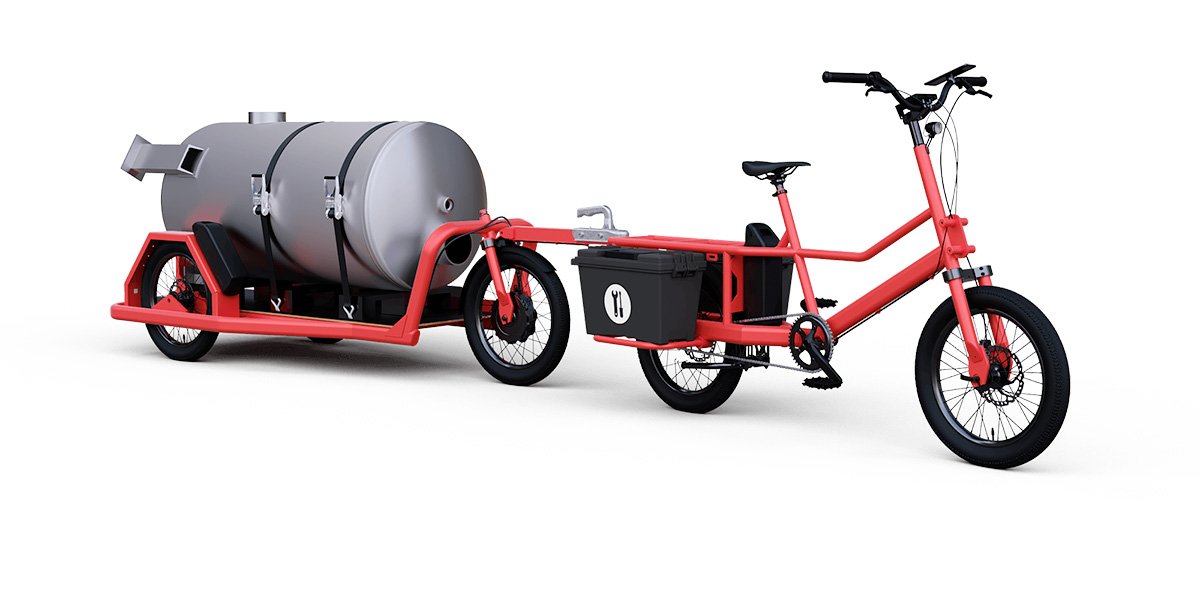
Market position and comparison
When compared to other cargo ebike and trailer combinations, the pelicanTrain surpasses some, like the 700-lb rated Tern/Carla Cargo duo, in terms of load capacity. However, it falls short of the Nanuk Megaliner from Germany’s Cargo Cycle in terms of sheer volume, with the Megaliner capable of holding up to 4,000 liters of cargo.
Despite this, the pelicanTrain offers greater modularity, transitioning from a compact electric cargo bike to a larger double-trailer setup. This flexibility is one of its primary advantages over competitors.
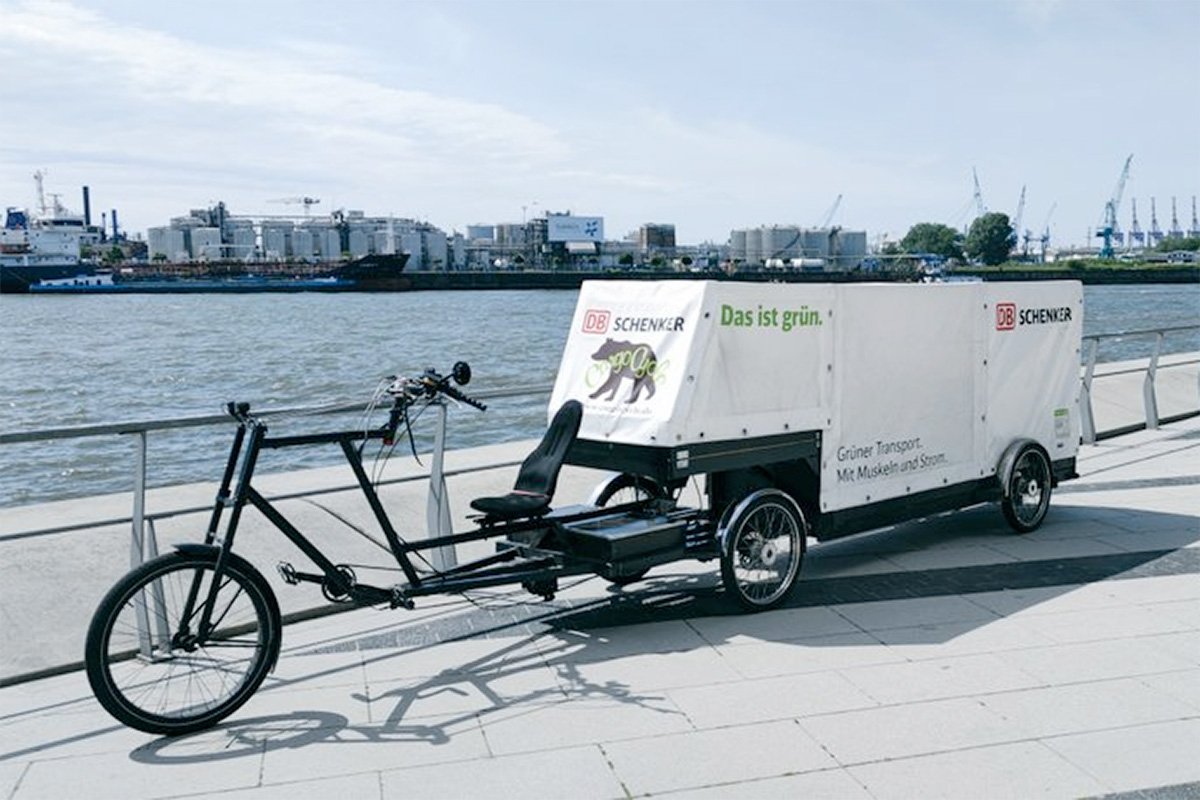
Pricing and availability
Pelican has made the pelicanTrain available for both purchase and rental, catering to a range of needs. The rental option is particularly appealing for those who require the system for single-use scenarios, like moving apartments, without the commitment of a purchase.
The retail pricing for the pelicanTrain starts at €4,500 (approximately US$4,920). For rentals, the rates are €15 per day or €45 per month, offering an affordable option for temporary needs.
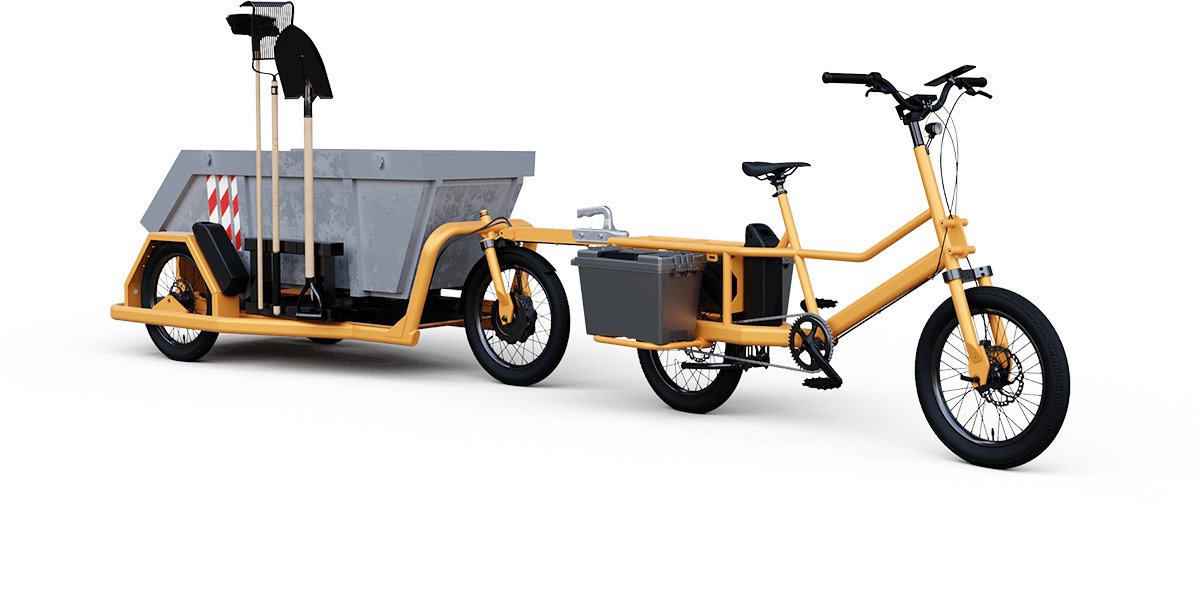
Conclusion
The pelicanTrain emerges as a notable innovation in the field of electric cargo transportation. Its modular design, significant cargo capacity, and flexible usage options make it an appealing choice for urban freight needs. While it may not be the largest in terms of volume capacity compared to some competitors, its modularity and ease of use position it as a practical solution for a variety of urban transportation scenarios. The pricing structure further enhances its accessibility, making it a viable option for both long-term investment and short-term needs.
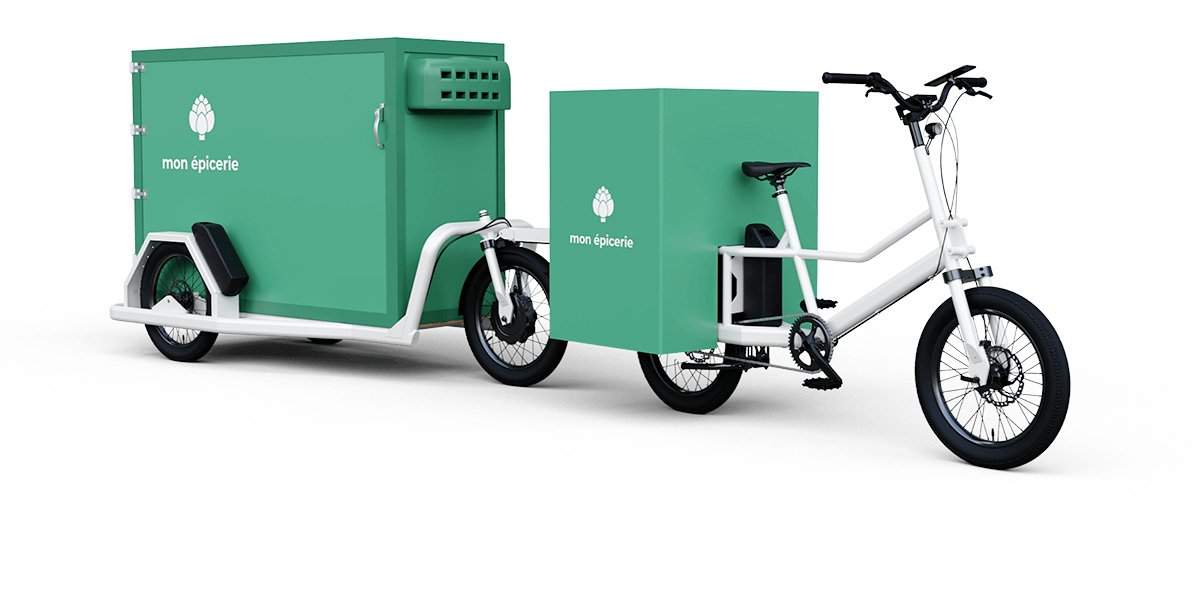
Source: Pelican

